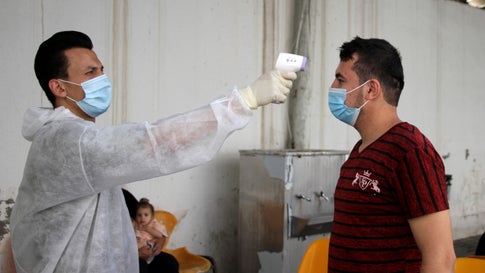NEW DELHI: A highly sensitive COVID-19 test kits, developed by researchers from the Norwegian University of Science and Technology (NTNU), relies on magnetic nanoparticles to extract viral RNA, have been supplied to India and Denmark.
“We are delighted to announce that Technical University of Denmark (DTU) and APS LABS (India) are the first outside of Norway to benefit from the NTNU technology,” said Tonje Steigedal, from NTNU Technology Transfer. Dr Paritosh Shekhar, director of APS LABS in Pune, said his organisation had evaluated the NTNU test kits and “found them extraordinary.”
“The performance was at par with top leading brands,” he said. “Quality was the factor for why we chose NTNU. Another reason was to support a research university rather than a commercial company. We strongly feel this association will be complementary for both of us,” Shekhar added.
Helene Larsen, Head of Development at DTU’s Centre for Diagnostics, said she had just received her first shipments of test kits and was looking forward to getting the testing up and running. She said DTU is doing tests for a number of Danish hospitals and hopes to increase the lab’s capacity to do as many as 10000 tests a day.
In late March, huge international demand for the reagents used for Covid-19 testing meant that Norway, like other countries, was having a hard time getting enough tests to track the disease among its population. According to NTNU researchers, one key aspect of the NTNU test is a specific combination of polar solvents, buffers, salts and other chemicals that do not damage the viral RNA molecule itself.
The solution contains substances that crack the virus open so that its genetic material can be extracted. NTNU has also developed iron oxide magnetic nanoparticles that strongly bind RNA. Once the magnetic nanoparticles are coated with the viral RNA, they can be removed from the solution using a magnet. PCR technology can then identify the genetic code from the RNA and compare it to the coronavirus.
The newly developed manufacturing process has proved to be very upscalable, which has enabled the NTNU labs to produce these high-quality and high-performance magnetic nanoparticles in very high volumes. The process allows the production of up to 1.2 million test kits per week, the research team noted.







